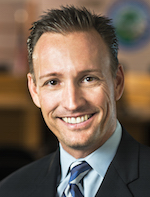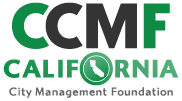 Ken Striplin was recently awarded CCMF’s first Harvard Leadership Program scholarships. The Leadership Decision Making program at Harvard Kennedy School focuses on designing environments that help reduce bias and inaccuracy in order to make the overall team and organization smarter. Grounded in theories and evidence from psychology, behavioral economics, and neuroscience, the program teaches leaders to answer tough questions, improve the accuracy of estimates, and more effectively structure negotiations.
Ken Striplin was recently awarded CCMF’s first Harvard Leadership Program scholarships. The Leadership Decision Making program at Harvard Kennedy School focuses on designing environments that help reduce bias and inaccuracy in order to make the overall team and organization smarter. Grounded in theories and evidence from psychology, behavioral economics, and neuroscience, the program teaches leaders to answer tough questions, improve the accuracy of estimates, and more effectively structure negotiations.
Below are Ken’s thoughts on the lessons he learned from the program:
Through the generous scholarship program provided by the California City Management Foundation, I had the opportunity to participate in the Harvard University Executive Education Program, entitled Leadership Decision Making, through the John F. Kennedy School of Government. The course was an intensive one-week seminar series that challenged leaders on how they make decisions and how they structure their environments for decision making.
Leadership decision making is all about the process we go through to make decisions. It combines psychology, neuroscience, and economics. As leaders, it is critical that we understand how we make decisions and that we create an environment that results in good decisions for the benefit of our organizations and communities. As the decisions we make as leaders continue to get more complex and the constituencies we serve get more diverse, it becomes more important for us to ensure decisions are not based on our own internal biases but, instead, are more evidence-based.
Based on the latest research from Harvard University, the program explored how our brains process information and make decisions. The coursework covered the limitations of our brains and how, in most instances, we rely on default decision-making. The challenges with default decision-making is that it includes errors and biases. If we are able to identify our biases and those inherent in decision-making, then we can structure our environments to make more thoughtful decisions.
The program included some of the best professors in the country. They are not only at the top of their respective academic arenas, they are well-versed in the practical application of the concepts they research and teach. The professors used case studies of major significance, drawing from personal experiences advising major companies and governments around the world.
The diversity of the class participants made it all the more enjoyable and effective. The class included participants from over 16 countries (50% were international students) and represented multiple industry types: corporate, non-profit, military, and government. Working in groups of such diverse perspectives really emphasized the necessity to understand how decisions are made and how working collectively yields better decisions. It also demonstrated how our own internal biases in decision making affect how we approach and/or solve problems.
Some of the more memorable moments of the program included hearing: a General in the Nigerian military discuss organizational issues he was facing; a human rights advocate from South Africa discuss challenges in policy making; and a Foreign Minister from Canada discuss meeting with diplomats from across the globe. Having the opportunity to work with all these individuals in a group setting to solve problems put into perspective why understanding our own biases is so critical.
As city managers, we make decisions every day. It is a rare opportunity to step away from the daily pressures and expectations and examine how we personally operate. The program provided an opportunity to learn new concepts and put into practice those concepts with a diverse group of professionals from around the world. Additionally, it also provided real-world, practical applications that will be implemented within my organization. Aristotle once said “Knowing yourself is the beginning of all wisdom.” I highly recommend this program for anyone wanting to learn the art of decision-making, understand how they make decisions, or ensure their organizations are making the best decisions possible.
